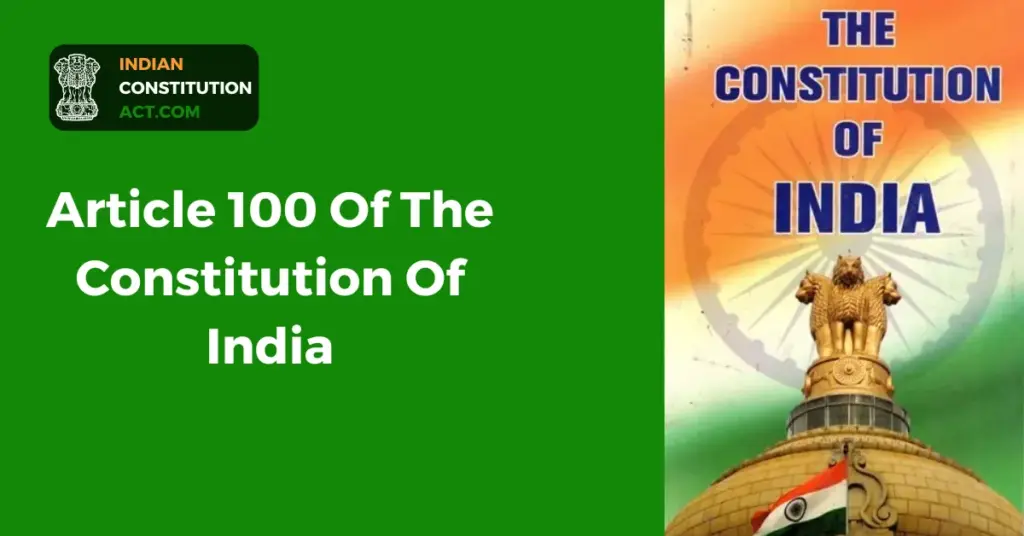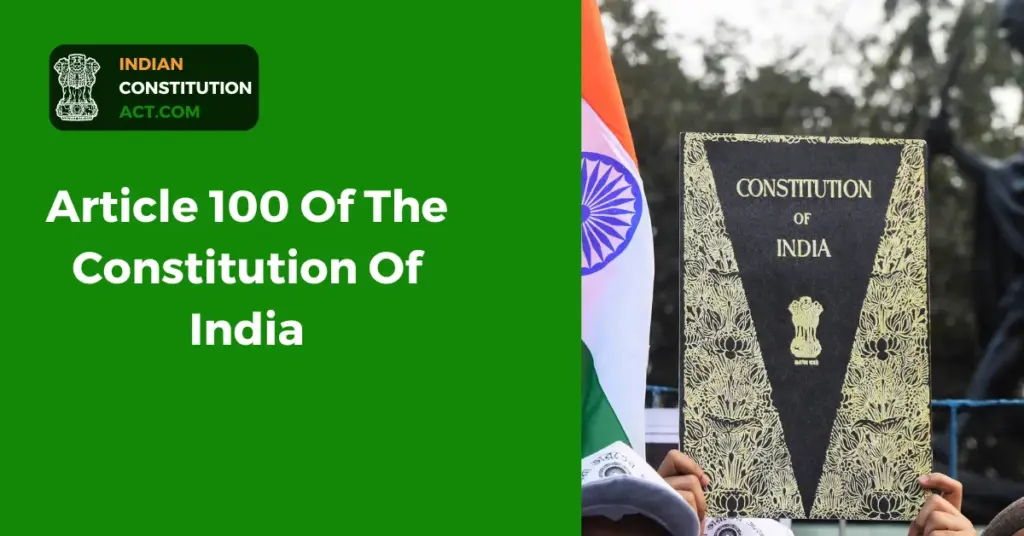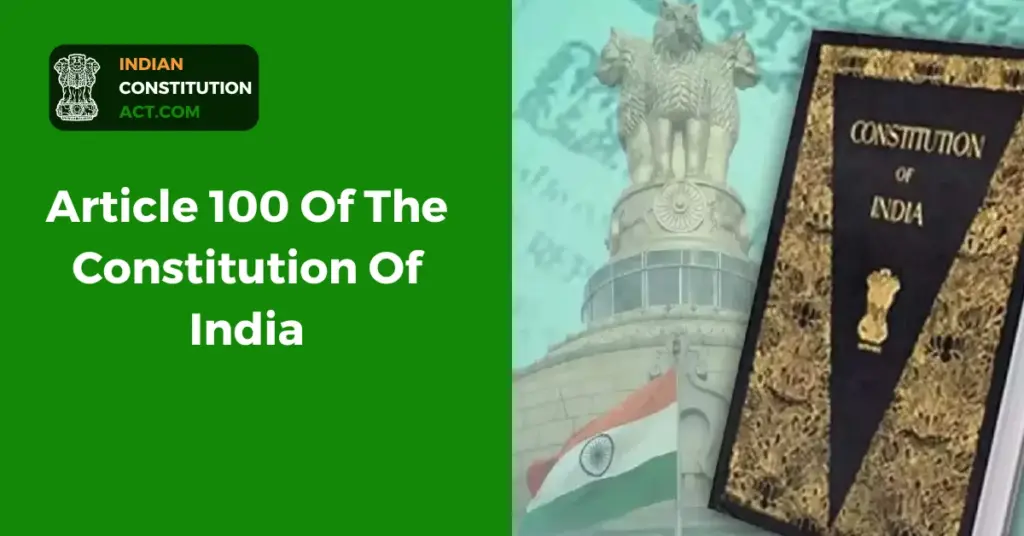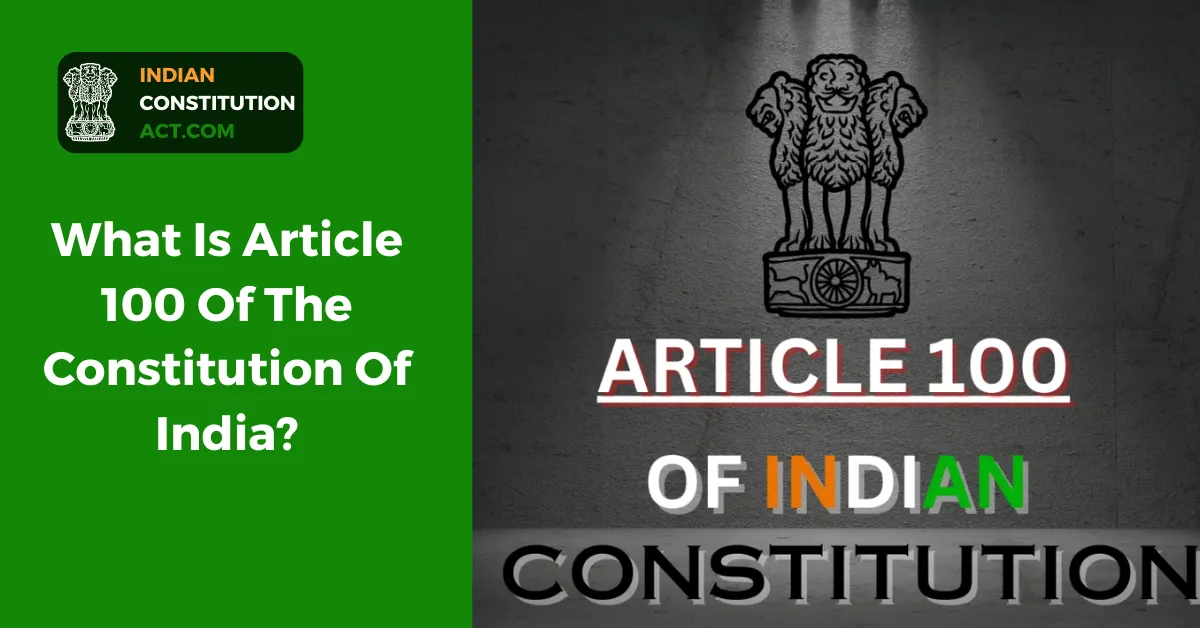Article 100 of the Constitution of India is one of the most important articles written in our Constitution. This article discusses the needs that are mandated to run a sitting in Lok Sabha and the Rajya Sabha. Read this entire blog to know what this article exactly says and what are the clauses of this article.
Table of Contents
Article 100 Of The Indian Constitution Of India

Article 100 of the Constitution of India states “Voting in Houses, power of Houses to act notwithstanding vacancies and quorum”. This article has a total of four classes that are primly focused on voting in the house, the quorum of the House, the voting authorities of the speaker in Lok Sabha, and the chairman of the Rajya Sabha in the other important factors that are deeply related to the working of the House.
Come let’s learn what all clauses of this article say:
What Is The Clause 1 Of Article 100 Of The Constitution of India?
(1) Save as otherwise provided in this Constitution, all questions at any sitting of either House or joint sitting of the Houses shall be determined by a majority of votes of the members present and voting, other than the Speaker or person acting as Chairman or Speaker The Chairman or Speaker, or person acting as such, shall not vote in the first instance, but shall have and exercise a casting vote in the case of an equality of votes.
Meaning:- This clause of this article claims that all the queries in sitting of either joint sessions of the Houses or any sitting of any particular House shall be officially determined by the majority of votes. The majority of the form is from the voting of the members that are present and are voting.
What Is Clause 2 Of Article 100 Of The Constitution of India?

(2) Either House of Parliament shall have the power to act notwithstanding any vacancy in the membership thereof, and any proceedings in Parliament shall be valid notwithstanding that it is discovered subsequently that some person who was not entitled so to do sat or voted or otherwise took part in the proceedings.
Meaning:- The second clause claims that the Lok Sabha and Rajya Sabha have all the power to function despite any member who is missing. The proceedings will be valid even after finding out that a person who is not an official member of the House has also participated in the proceeding or the voting.
Also read: Who Removed Article 370 Of The Indian Constitution And Why?
What Is Clause 3 Of Article 100 Of The Constitution of India?
(3) Until Parliament by law otherwise provides, the quorum to constitute a meeting of either House of Parliament shall be one-tenth of the total number of members of the House.
Meaning:- The third clause of this article of our Constitution claims that a quorum will be needed to start a meeting in either House of Parliament.
What Is Clause 4 Of Article 100 Of The Constitution of India?
(4) If at any time during a meeting of a House, there is no quorum, it shall be the duty of the chairman or Speaker, or person acting as such, either to adjourn the House or to suspend the meeting until there is a quorum.
Meaning:- The fourth clause claims that if there is no quorum reached at the time of sitting in the House of Parliament then the Speaker or the Chairman or anyone acting on their behalf must dismiss the meeting or keep a hold on the meeting until the quorum arrives.
Key Points Of Article 100 Of The Constitution of India

- Article 100 of the Constitution works to deal with the Voting in Houses, the power of Houses to act notwithstanding vacancies and quorum.
- The speaker presides over the sessions of the houses and conducts the business of the House,
- Article 100 gives that the Speaker shall have and exercise a casting vote in the case of an equality of votes.
- Article 100 of the Constitution of India also maintains the discipline and decorum of the House and it can also punish MPs who obstruct it.
